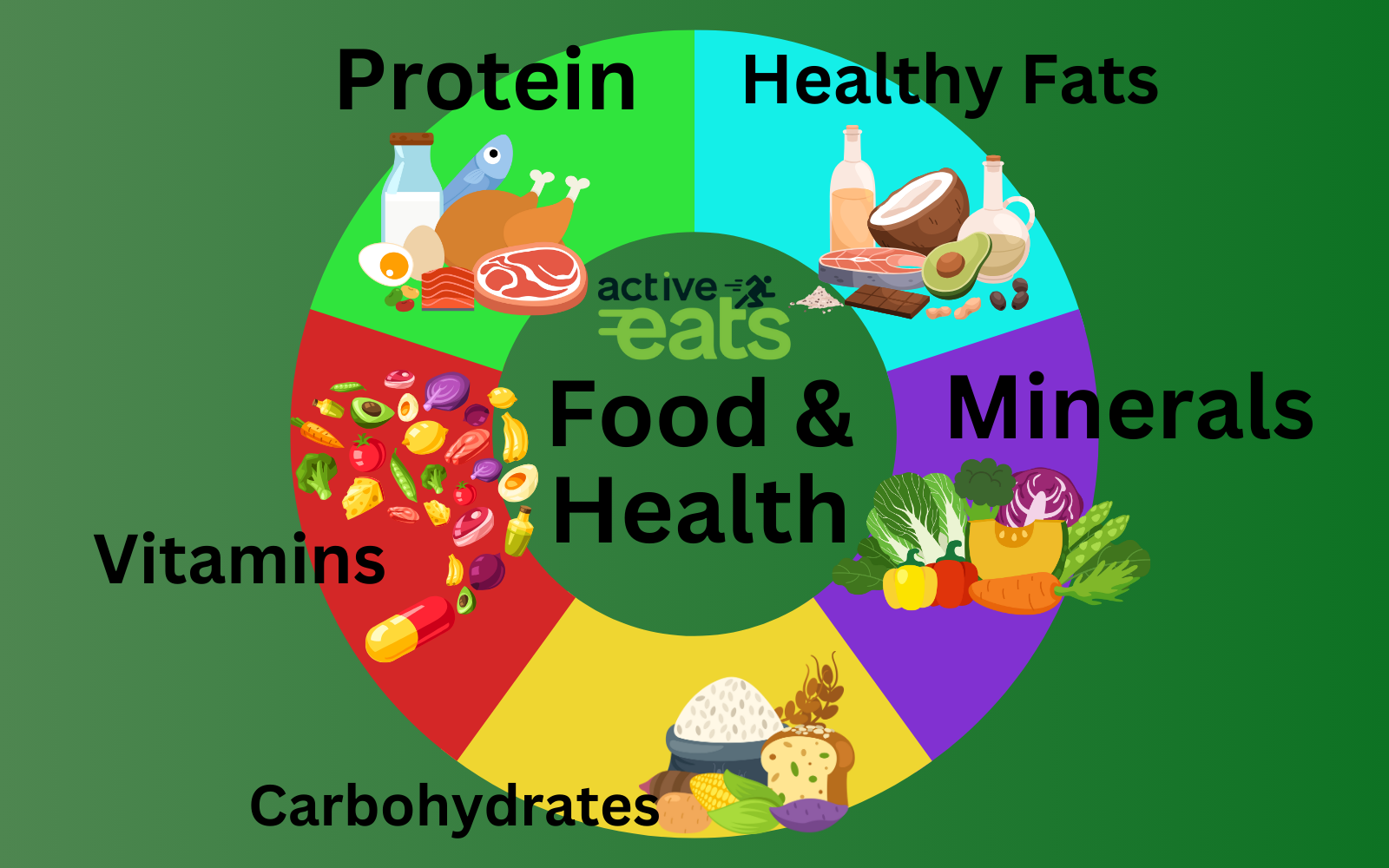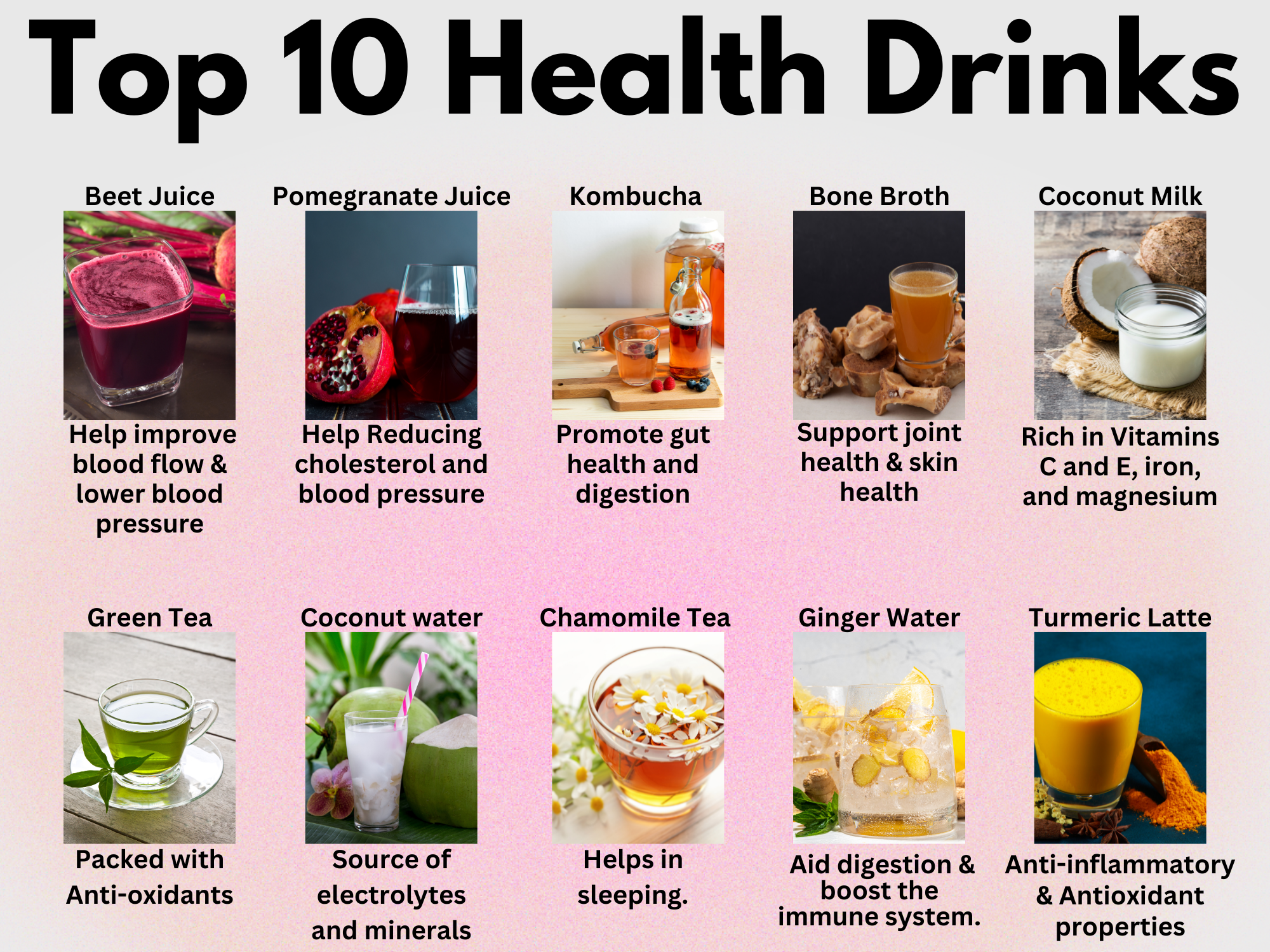Elevating Well-being: The Crucial Connection Between Diet and Health
Welcome to our blog post on the importance of diet and health! In today’s fast-paced world, where people often neglect health over convenience and comfort, the need for proper nutrition has increased more than ever. The foods we eat, water we drink, provide the building blocks for our bodies, influencing not only our physical health but also our mental and emotional states.
This article explains the relationship between health and nutrition, shedding light on the heavy importance of a balanced diet in maintaining an overall healthy lifestyle. With the highest ever cases of lifestyle-related diseases like obesity, diabetes, and heart conditions in recent years, it has become more important now to understand how the foods we eat impact our health.
In this article, we will explore the connection between food and health, the importance of a healthy diet, and its impact on various aspects of our well-being. Also, we will explore practical tips to help you make informed choices about your diet. Whether you’re looking to lose weight, boost your energy levels, or simply enhance your overall well-being, understanding the fundamentals of health and nutrition is the first step towards achieving your goals.
So, join us on this journey to unravel the mysteries of diet and discover how making mindful choices can lead to a healthier, happier life.
The Connection Between Diet and Health
The link between food and health is profound and pivotal. The nutrients in our diet, including macronutrients (carbohydrates, proteins, fats) and micronutrients (vitamins, minerals), are essential for our body’s proper functioning and protecting against conditions like obesity, heart disease, and diabetes. Whatever we eat affects our energy levels, weight, and susceptibility to chronic diseases.

Additionally, our diet can affect inflammation levels, gut health, and even mental well-being. Food choices which are high in sugar, saturated fats, and processed ingredients can promote inflammation and affect basic functions of the body and food which supports a healthy gut microbiome is linked to better digestion, a robust immune system, and improved mood.
Ultimately, the food we consume not only fuels our bodies but also plays a crucial role in determining our overall health and longevity. Making informed dietary choices is essential for promoting and maintaining good health.
The Importance of a Healthy Diet
Eating a balanced and nutritious diet is crucial for maintaining optimal health and preventing various health conditions. A healthy diet provides the necessary nutrients, vitamins, and minerals that our body needs to function properly.
A healthy diet should include a wide variety of fruits, vegetables, whole grains, lean proteins, and healthy fats as these foods provide essential nutrients such as fiber, antioxidants, vitamins, and minerals that support our immune system and overall well-being.
Also, a healthy diet can help control weight and reduce the risk of obesity-related diseases such as heart disease, diabetes, and certain types of cancer. It also promotes healthy digestion, improves energy levels, and enhances mental clarity.
By adopting a healthy diet, individuals can experience improved sleep, increased muscle strength, and a reduced risk of chronic diseases. It can also contribute to better mood and mental health, reducing the risk of depression and anxiety.
Heart Health and Diet
A healthy diet plays a key role in maintaining heart health and reducing the risk of cardiovascular diseases. The food we consume can either promote heart health or contribute to the development of heart problems.
One of the main aspects of a heart-healthy diet is minimizing the intake of saturated and trans-fats, cholesterol, and sodium. These substances contribute to the buildup of plaque in the arteries which hinders the normal blood flow leading to heart disease and other cardiovascular issues.
Therefore, it is important to focus on consuming foods that are low in saturated and trans-fats like lean cuts of meat, skinless poultry, and low-fat dairy products. Also, incorporating sources of healthy fats, such as avocados, nuts, and olive oil, into the diet can improve the HDL Cholesterol (also known as good cholesterol) which helps in reducing the plaque buildup in the arteries.
A heart-healthy diet should also be rich in fruits, vegetables, and whole grains which are packed with beneficial nutrients like vitamins, minerals, and antioxidants that can help protect against heart disease along with having regular physical activity into your routine is essential for optimal heart health. Together, these lifestyle choices can significantly reduce the risk of cardiovascular diseases and improve overall well-being.
The Impact of Diet on Teen Health
Proper nutrition during teenage years is crucial for proper growth, development, and overall well-being. During this phase of life, the body undergoes rapid changes, and consuming a healthy diet becomes even more important.
A healthy diet helps teenagers maintain a healthy weight, support brain development, and prevent health problems like obesity and diabetes. By providing essential nutrients, vitamins, and minerals, a balanced diet ensures that teenagers have the necessary fuel to grow and thrive.
Teenagers should focus on eating at least 5 servings of fruits and vegetables daily for adequate vitamins, minerals and fiber. Also, lean sources of protein like chicken, fish, tofu, beans and legumes should be consumed for muscle and brain development.
Teenagers often have a high level of physical activity which requires high energy. This energy needs can be provided with whole grain like whole wheat bread, brown rice and oats. Also, adequate low fat dairy products should be consumed to provide the body with calcium and Vitamin-D.
Teenagers should avoid sugary sodas and excessively caffeinated drinks and instead opt for plain water for hydration. Also, teenagers should snack with yogurt, whole fruits or nuts rather than chips or sugary treats to avoid glucose spikes at early ages.
It is crucial for teenagers to understand the importance of making healthy food choices. Encouraging them to include a variety of fruits, vegetables, whole grains, lean proteins, and healthy fats in their diet can set the foundation for a lifetime of good health.
The Role of a Healthy Breakfast in Overall Health
Eating a nutritious breakfast is important for kickstarting the metabolism and providing energy for the day. A healthy breakfast can improve cognitive function, enhance concentration, and help with weight management.
Skipping breakfast can lead to low energy and poor concentration along with high risk of eating unhealthy later in the day. Hence, it is always advisable to eat a balanced breakfast which includes whole grains like oatmeal or whole wheat toast for sustained energy, a source of lean protein such as eggs or yogurt for muscle and brain function, and fruits or vegetables for essential vitamins and fiber. Avoid sugary cereals and opt for a nutritious start to your day.
Top 10 Healthiest Drinks for you
When it comes to staying hydrated and promoting good health, there are several drink options that are considered to be the best choices:

Top Health Drinks and their Benefits.
By incorporating these healthiest drinks into your daily routine, you can quench your thirst while promoting overall well-being.
Creating Healthy and Balanced Meals
A healthy and balanced meal should include a variety of foods from different food groups to ensure that you are getting all the necessary nutrients. Here are some tips for creating healthy and balanced meals:
- Include fruits and vegetables: Aim to fill half of your plate with fruits and vegetables. They are rich in vitamins, minerals, and antioxidants.
- Choose whole grains: opt for whole grain bread, pasta, and rice instead of refined grains. Whole grains provide fiber and are more nutritious.
- Include lean proteins: Include lean meats, poultry, fish, beans, and legumes in your meals. These are excellent sources of protein without the added saturated fats.
- Include healthy fats: Incorporate sources of healthy fats such as avocados, nuts, seeds, and olive oil. These fats help in nutrient absorption and are important for brain health.

Components of a healthy meal
- Control portion sizes: Be mindful of portion sizes and avoid oversized portions. Use smaller plates and bowls to help control your portion sizes.
- Drink plenty of water: Stay hydrated by drinking plenty of water throughout the day. It helps with digestion and overall health.
By following these guidelines, you can create meals that are not only delicious but also provide your body with the nutrients it needs to stay healthy.
Conclusion
In conclusion, the connection between diet and health is undeniably important. A healthy diet plays a major role in maintaining optimal health, preventing chronic diseases, and promoting overall well-being. By consuming a balanced and nutritious diet containing proteins, healthy fats and carbohydrates, we provide our bodies with the necessary nutrients, vitamins, and minerals they need to function properly. This is especially important for heart health, as a healthy diet can help reduce the risk of cardiovascular diseases.
Additionally, during the teenage years, a balanced nutrition is essential for growth, development, and preventing health problems like obesity and diabetes. A healthy breakfast for teenagers as well as adults is also important, as it kick starts metabolism, provides energy, and improves cognitive function. When creating meals, it’s important to include a variety of wholesome foods and practice portion control for maintaining a healthy weight. By prioritizing our diet and overall health, we can lead a long, healthy, and fulfilling life.


Healthy Lifestyle - coachactiveeats.com
[…] a healthy diet: Focus on eating a variety of nutritious foods from all food groups. This can help you maintain a […]